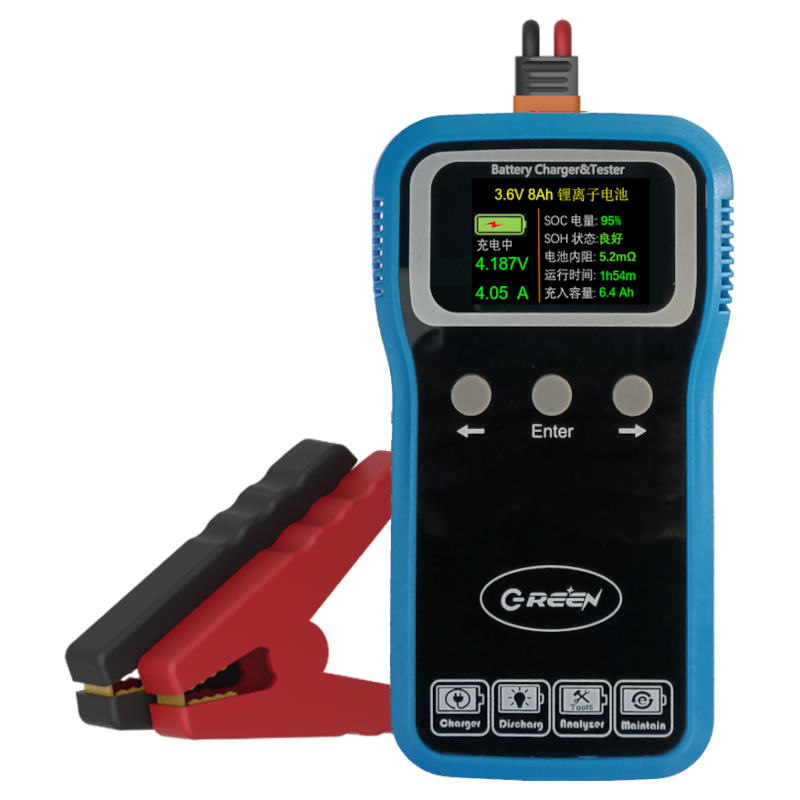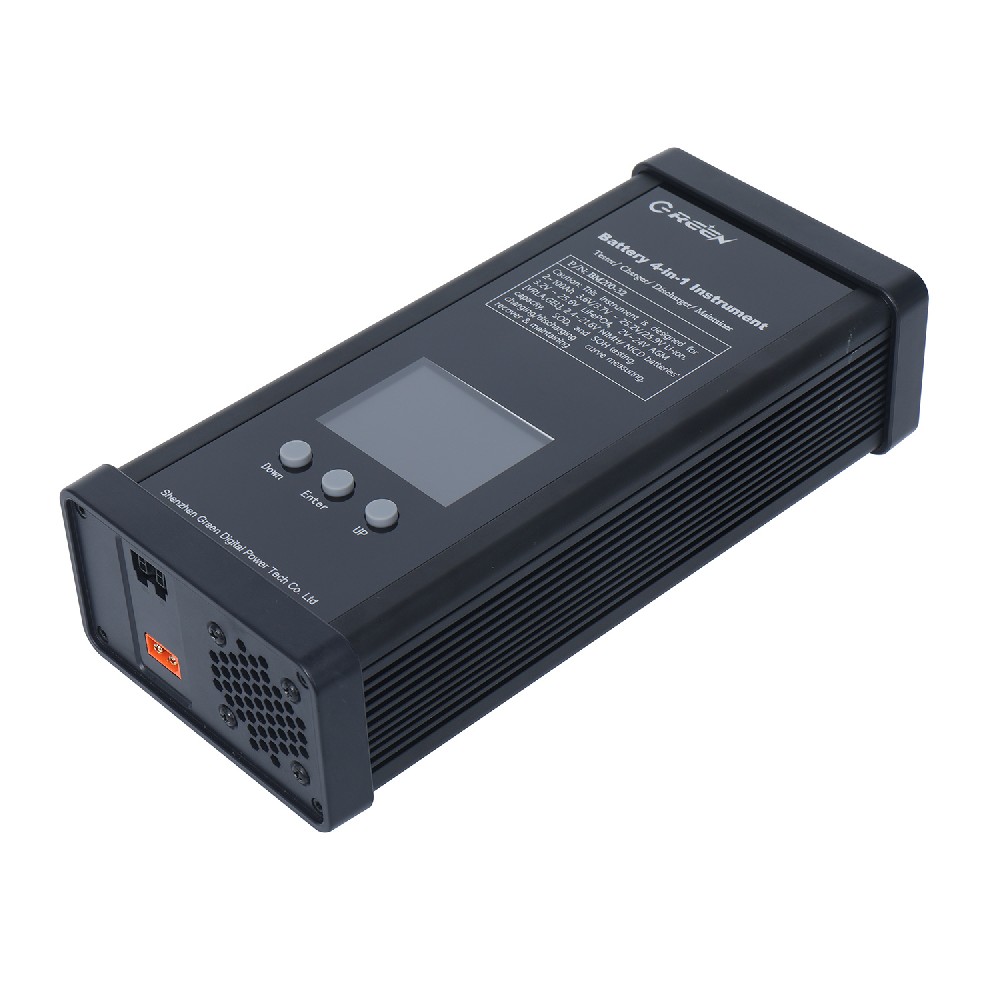Exploring the Best Battery Tester: Technological Innovation and Performance Excellence
In the rapidly evolving era of new energy, batteries, as the core power source for various electronic devices, have become a topic of utmost concern for users regarding their performance and safety. With the continuous advancement of battery technology and the expansion of its application fields, battery testers, as crucial tools for evaluating battery performance and safety, have increasingly gained prominence. This article delves into the definition of "the best battery tester" from multiple dimensions, including technological innovation, performance requirements, and market applications, and introduces several highly acclaimed products in the market.
The Importance of Battery Testers
Batteries, as the key components for energy storage and conversion, are widely used in mobile phones, laptops, electric vehicles, energy storage systems, and numerous other fields. As the performance requirements for these devices continue to escalate, battery testers have emerged as vital tools for ensuring battery quality and safety. They not only assist manufacturers in strictly controlling product quality, ensuring that every battery meets established standards before leaving the factory, but also provide abundant experimental data for battery research institutions, accelerating the development of new battery materials and technologies.
Defining the Best Battery Tester
"The best battery tester" is not a static concept; it evolves with technological advancements and changes in application scenarios. However, in general, the best battery tester should possess the following core characteristics:
High Precision: Capable of accurately measuring basic battery parameters such as voltage, current, and capacity, as well as advanced indicators like internal resistance, cycle life, and charge-discharge efficiency.
Multifunctionality: Supports multiple testing modes to cater to different types of batteries, including 3C batteries, power batteries, etc.
Efficiency: Employs advanced testing technologies to complete the testing process swiftly, enhancing testing efficiency.
Safety: Incorporates various safety measures like overvoltage protection and overcurrent protection to prevent accidents during testing.
Ease of Use: Features a user-friendly interface and straightforward operation, allowing even non-professionals to use it effortlessly.
Reliability: Comes from reputable brands, ensuring quality and long-term stable operation.
Technological Innovation and Performance Enhancement
High-Precision Measurement Technology
With the continuous development of electronic technology, high-precision measurement technology has become a core competitive advantage for battery testers. The combination of high-precision sensors and advanced data processing algorithms enables battery testers to achieve precise measurements of battery performance. For instance, some high-end battery testers can accurately measure battery capacity with extremely low error rates, providing reliable test data for users.
Multifunctional Testing Modes
Modern battery testers no longer limit themselves to a single testing function but offer multiple testing modes to meet diverse needs. For example, some battery testers can not only measure basic parameters like battery voltage and current but also perform advanced functions like internal resistance testing, capacity testing, and cycle life testing. These multifunctional testing modes enable battery testers to play a crucial role in battery research, production, maintenance, and fault diagnosis.
Intelligence and Automation
With the integration of IoT, big data, and other technologies, modern battery testers are gradually evolving towards intelligence. By integrating intelligent management systems, testers can automatically set up, execute, and analyze testing processes, reducing manual intervention and enhancing testing efficiency. Simultaneously, real-time uploaded test data provides powerful support for production management and product traceability, facilitating enterprises' digital transformation and intelligent upgrading.
Applications Of The Best Battery Testers
The market applications of the best battery testers are extensive and diverse, encompassing various fields from consumer electronics to new energy vehicles and energy storage systems. Here are the specific aspects of their market applications:
New Energy Vehicle Sector
Electric Vehicles (EVs): In the EV industry, battery testers play a pivotal role. With the rapid growth of the EV market, demands for battery performance and safety have escalated. Battery testers comprehensively assess EVs' traction battery packs, evaluating key indicators such as charge-discharge performance, capacity, and cycle life, thereby enhancing EVs' driving range and safety. Accurate test results enable automakers to screen and categorize batteries, optimize battery pack configurations, and upgrade vehicles' overall performance and reliability.
Energy Storage Systems (ESSs): Battery testers are equally indispensable in the ESS sector. High-performance batteries are necessary for ensuring stable energy storage and release in ESSs. Battery testers evaluate the performance of battery packs in ESSs, boosting system efficiency and reliability. This is significant for renewable energy integration, grid stability, and microgrid construction.
Consumer Electronics Sector
In the consumer electronics sector, battery testers are widely used for battery performance testing in portable devices like smartphones, tablets, and laptops. As these devices rapidly evolve, so do the requirements for battery performance. Battery testers evaluate critical metrics like charge-discharge performance, capacity, and cycle life, assessing battery performance and lifespan to provide reliable data support for product design and production.
Industrial Manufacturing & Research & Development
Industrial Manufacturing: On battery production lines, testers are utilized in the formation and capacity sorting processes, ensuring battery performance and quality. Formation involves cycling batteries post-production to activate their performance, while capacity sorting classifies batteries by capacity to enhance pack performance. This process is crucial for enhancing production efficiency and quality.
Research & Development: In battery R&D institutions, testers are indispensable research tools. By simulating battery performance under various operating conditions, researchers gain insights into battery workings and characteristics, providing experimental data for new material and technology development.
Other Application Areas
Beyond the above sectors, battery testers are also widely used in drones, IoT devices, and household appliances. Drones' flight time and stability hinge on battery performance, with testers assessing their service life and performance. IoT devices demand high battery power, and testers evaluate capacity and runtime, enhancing device stability and reliability. In household appliances, testers assess battery performance, predicting replacement times and extending appliance lifespan.
In conclusion, the market applications of the best battery testers are vast and multifaceted, encompassing new energy vehicles, consumer electronics, industrial manufacturing, R&D, and more. As battery technology continues to advance and expand into new domains, the market demand for battery testers will undoubtedly persist in growing.
Future Outlook
With the vigorous development of the new energy industry and continuous technological advancements, battery testers will play an increasingly important role in the future. Future battery testers will place greater emphasis on high precision, multifunctionality, intelligence, and automation. As IoT, big data, and other technologies become more deeply integrated, battery testers will be more closely integrated with production management systems, enabling real-time data upload and analysis, providing powerful support for enterprises' digital transformation and intelligent upgrading.
Furthermore, as battery technologies continue to innovate and expand their application fields, battery testers will face more challenges and opportunities. For instance, with the rise of solid-state batteries, battery testers will need to continually upgrade and improve to adapt to new testing requirements. Simultaneously, the rapid growth of the electric vehicle market will significantly increase the demand for power battery testing, offering vast development opportunities for the battery tester market.
In conclusion, "the best battery tester" is a goal that is constantly pursued and surpassed. With continuous technological advancements and the expansion of application scenarios, battery testers will play an increasingly important role in the future, contributing to the advancement of new energy technologies.




